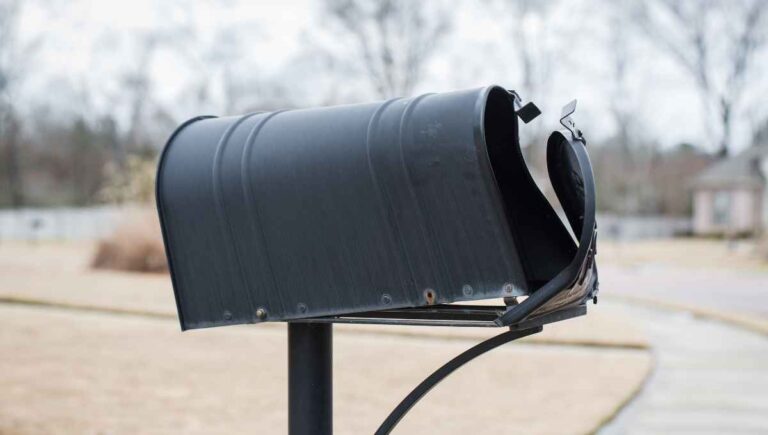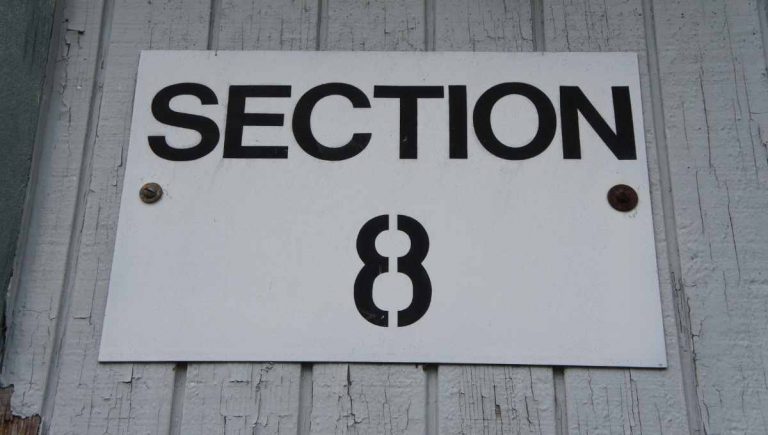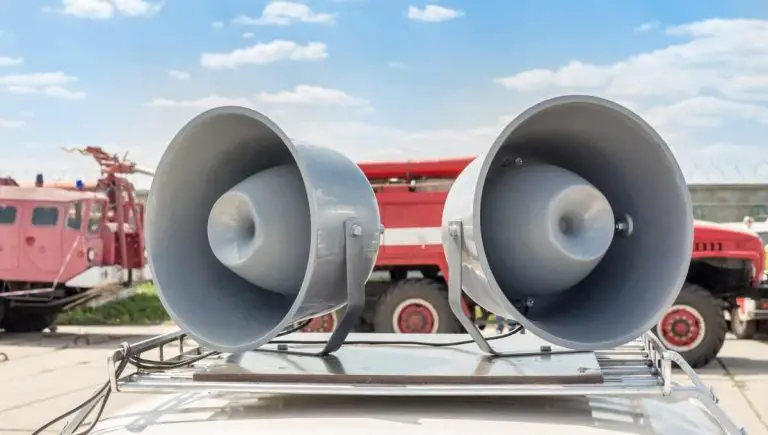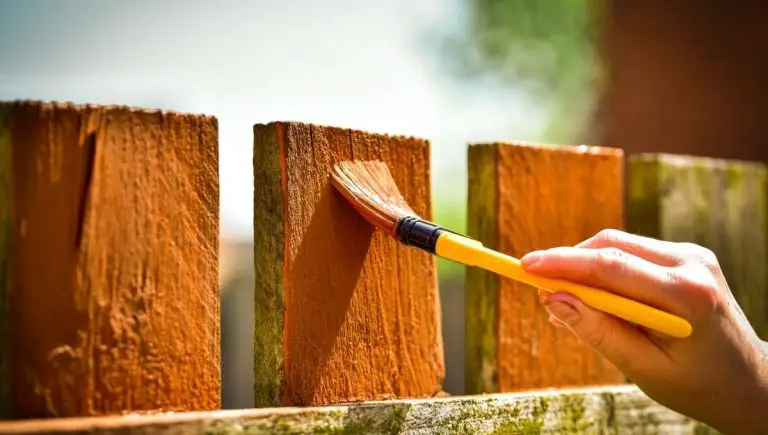Is It Illegal to Share Water With Your Neighbors? (The Laws)
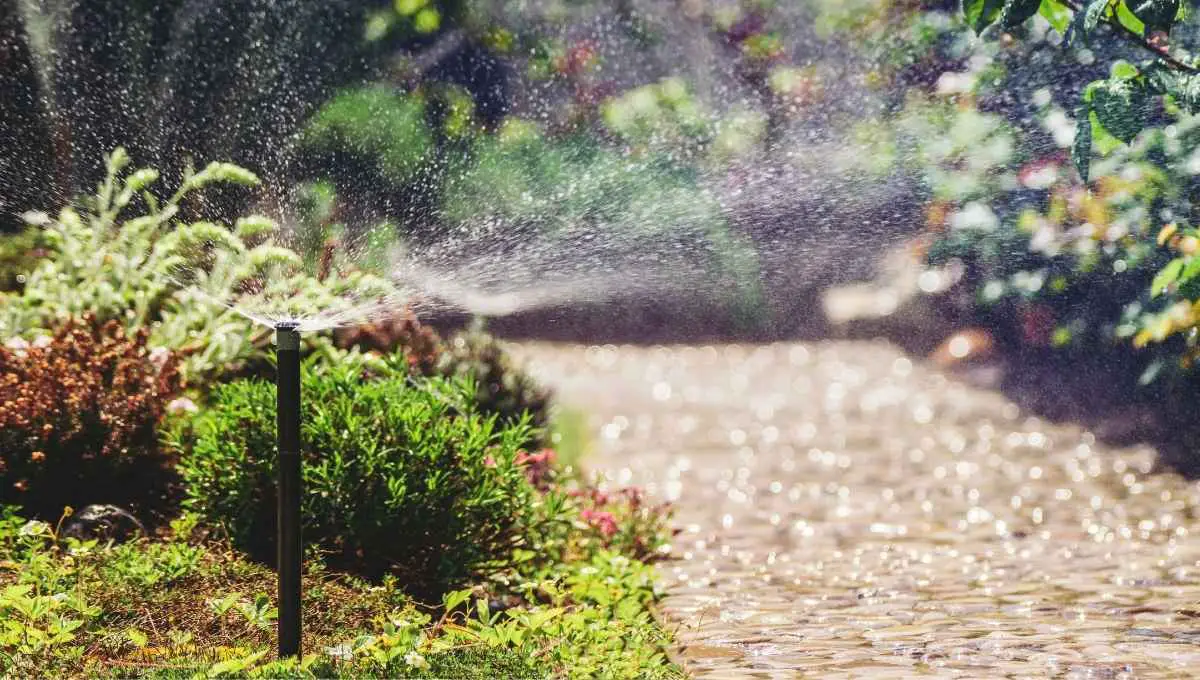
One of the great things about living in a neighborhood is that you can share resources with your neighbors. But what about sharing something as essential as water? Is it illegal to share water with your neighbors?
Sharing water with your neighbors is not illegal in most cases. However, there have been situations where people were fined for illegally sharing water to help their neighbors evade utility payments. It’s recommended to always use your best judgment if you decide to share water with neighbors.
In this blog post, we’ll explore the legalities of sharing water with your neighbors, as well as some of the risks involved. We’ll also cover how to proceed if you suspect your neighbor might be guilty of water theft.
This post contains affiliate links from Amazon and other stores. This means Yard Blogger may earn a commission if you make a purchase using any of our links. Please refer to our full affiliate disclosure policy for full details.
Here’s a Quick Pro Tip!
Sharing your water may not be illegal, but you should still look for your local laws just to make sure that your case truly merits that you need to share water with your neighbor. Additionally, water theft is a crime and it can happen to anyone.
Luckily, there are tools you can use to prevent water theft, such as these:
1. Outdoor Security Cameras – You truly “gotta catch them all”! Spot the thieves immediately with these modern outdoor security cameras. They will never approach your hoses again!
2. Protective Faucet Lock – No access, no theft. Surprise water thieves with this protective faucet lock. They never see it coming.
3. Hose Bib Lock – Keep your water safe.
Sharing Water with Neighbors
But before we get into the details of all things water, you must understand how permissible it is to share water with your neighbors. So, let’s discuss this topic below!
Is It Illegal to Let Your Neighbor Use Your Water?
You can let your neighbor use your water temporarily without any legal repercussions since you would still be paying for the service. You can do this by letting them use your gardening hose, or by giving them stored water.
However, if you’re letting your neighbor use your water to help them avoid utility payments, then you may fall into an illegal act.
So, make sure you’re aware of your state laws before attempting to do anything similar. This also applies to electricity.
Is It Illegal to Use Someone Else’s Water?
It’s illegal to use someone else’s water without permission, as this would count as theft and you could be subject to fines that can easily vary from $500 to $10,000, plus the payment you’d have to provide for all the time you avoided your own bills.
Using someone else’s water without their explicit permission is theft, and you could pay heavy consequences if you ever attempt to do it.
So, always do things right and according to the law.
Is It Illegal to Let My Neighbor Use My Hose to Water Their Garden?
It’s not illegal to let your neighbor use your house to water your garden. The only way that this could be illegal is if you never allowed them to use it. So, what differentiates theft from domestic water sharing is the allowance factor.
You can allow your neighbor to use your hose to water their garden, so long as it’s a temporary agreement and it doesn’t threaten you or your neighbor’s safety.
However, if this is going to be a recurring thing, the most appropriate thing to do is to establish a written agreement.
This written agreement should specify things like:
- How much water they’re allowed to use
- When they are allowed to use it
- Whether they have to pay a small percentage of your water utility bill for usage.
Additionally, you should not connect your water hose to their home permanently, especially if the reason they don’t have water is due to a lack of payments for their utilities.
Doing this can make you subject to fines by your local government, so don’t even think about it.
Is It Possible to Share Water?
It’s possible to share water with your neighbor, or to different parts of a property (if you live in a two-floor building or an apartment complex). Additionally, you can also share water by using shared water wells between properties.
Additionally, the only way it’s permissible to share water is if the owner of the property (in this case, it could be you) allows the neighbor to use it.
However, it’s better to consider doing it only in huge circumstances that imply an emergency.
You might also enjoy our post on Can Your Neighbor Steal Your Water?
Legal Issues With Water Sharing
Why Shouldn’t I Let My Neighbor Share Water With Me?
It’s recommended to avoid letting your neighbor borrow your water regularly because it can become problematic if you don’t establish a written agreement. Additionally, it can become illegal if certain circumstances were to arise.
For example, in Idaho, a man was fined $500 for sharing his water with his neighbor, who was avoiding utility payments.
Even though the man was paying for his utilities, he still provided a service to someone who was taking advantage of the situation.
In such circumstances, we can see that what he did became illegal just because of the context in which the incident happened.
The neighbor pretended to keep benefitting from the water permanently, even if they didn’t make any attempts to pay their bills.
However, let’s say that your neighbors just need water because their supply was shut off due to something out of their control, like city sewage repairs.
In this scenario, sharing water wouldn’t be an issue, although it has to be done carefully.
In such cases, sometimes, utility companies will allow you to permit your neighbor from benefitting from your water.
This context is much more different than the one mentioned before because it involves a legitimate emergency rather than an attempt to avoid paying utility bills.
Can I Let My Neighbor Use My Garden Hose?
You can let your neighbor use your garden hose if there is a real emergency that needs to be covered immediately. For example, burst or leaking pipes, or a bigger situation that may or may not involve the city’s sewage system. These cases are a true emergency.
If your neighbor’s water was cut off due to extensive repairs that the utility companies must do, or if something major occurred with the city’s sewage system, then you are allowed to let your neighbor use your garden hose.
But, if you are letting your neighbor use your garden hose as a matter in order to benefit from the utility without having to pay bills, you may be aiding in an illegal act.
If caught, then you may be considered legally liable in most states.
What Are the Laws Surrounding Sharing Residential Water?
The laws or ordinances that surround sharing residential water from shared wells involve the need for keeping the water safe, getting a written agreement about when the well should be used and inspected, and the information on the codes that its installation must follow.
Some of the codes that involve sharing a well specify that the well can have four or fewer connections.
There should be a written document as proof of the agreement between all the people who benefit from the shared well.
Of course, these laws or ordinances vary per state. And, the wells should be well-taken care of, and inspected regularly to ensure that the water is safe to use within the residence.
Why Is Sharing Water Illegal?
Sharing water is not always illegal in many states, but it mostly depends on the circumstances. For example, if you share your water with a neighbor knowing that they failed to pay their utilities, you may be legally liable for a civil offense.
Therefore, it’s important to learn about your city ordinances before considering sharing your water with your neighbor.
This should only be feasible if a valid reason is considered or if the utility is looking for your help regarding an emergency.
How to Prevent Stealing
There are many amazing tools you can use to protect your outdoor faucets from sneaky little neighbors. Gladly, you can find them at any hardware store, and better yet, online!
So, let’s talk about what tools you can use to prevent someone from stealing your water.
What Is a Hose Bib Lock?
A Hose Bib Lock is an apparatus used to lock external faucets so that no outside individual is capable of using it to steal water. You just have to lock it in your garden hose, correctly, and it should work smoothly.
To install it, you just have to put it on the outer faucet, rotate it, and make sure that it stays fit. After, you put the key in the hose bib and later rotate clockwise to lock it.
If you need to use your garden hose, all you have to do is remove it by using the key and rotating it counterclockwise to remove the hose bib lock in order to connect the garden hose with the faucet.
Can I Lock an Outside Faucet?
You can lock an outside faucet by using a faucet lock to avoid having intruders steal your water. It covers the entire faucet and it’s usually installed on the wall. Luckily, they can be found at a hardware store or online.
You can use a faucet lock to avoid having issues with stolen water and even vandalism. So, don’t hesitate to get one. You may be making the best decision of your life.
How Can I Tell if My Neighbor Is Stealing My Water?
Many ways to tell if your neighbor is stealing your water include paying extra attention to your utility bill, or by turning off all your water mains to check if the meter reads higher than normal. But, your water utility company can also help you investigate the matter.
Even though you can test out if someone is stealing your water, it’s best to consult with your utility company, as they have the means to conduct a thorough investigation that is likely to provide you with solid answers.
Additionally, sometimes you can notice when a neighbor is stealing your water after you look at your faucets.
If you notice a hose that isn’t yours, it’s evident that someone is tampering with your water. Consult with your local authorities to learn about the right way to proceed.
How Can I Prevent My Neighbor From Stealing My Water?
To prevent your neighbor from stealing your water, you must employ mechanisms that make it harder for them to reach to your water. Additionally, placing security cameras and other tools around your house will likely discourage them from trying to steal your water.
For example, you can use a faucet lock for your outside faucet. That way, they’ll be unable to connect their garden hoses to your water lines.
Therefore, they won’t be able to steal water from your property.
Additionally, you can also try to block your property’s access by blocking or enclosing your property with a good fence.
And, try to put security cameras in the direction of your faucets so that if something happens, you’ll know who to report to the police.
All About Shared Wells
We know now that it’s more appropriate to let your neighbor use your water in cases of extreme emergencies.
But, does this apply to wells? Can you share a well with your neighbor? What are the legalities surrounding it? Let’s disclose that below!
Can You Share a Well With Your Neighbor?
You can share a well with your neighbor. In fact, you can share a well with multiple neighbors. The only thing that is required to share a well is a compromise, compliance with local laws, and proper diligence to be able to maintain the water safely.
So, for you to share a well, you have to make sure you have a shared well agreement. Without one, it’s likely that your access to the well is not protected under the jurisdiction of your state.
Most well agreements should include:
- Costs regarding water pumping
- Permissions regarding water testing
- Prohibition to use the water for other purposes other than domestic
- And so on.
Of course, these can vary by state or city. Thus, it’s important that you always take an extra effort to check out the laws or ordinances applicable to you.
If a Shared Well Is on My Property Is It Mine?
If you have a well on your property, and you share it, it’s likely that it’s yours and the neighbors that share it with you are in compliance with a well agreement (often required by law) for the sake of the right of access to the water supplied by it.
And, even though it is expected of you (as the owner), to maintain the well, the neighbors who share it are also expected to provide the needed costs to keep it working smoothly.
Who Owns a Shared Well?
The person who owns a shared well usually is the one that has the well inside their land or property. They would be sharing the well with their neighbors, who must follow the well agreement to ensure that all parties are using the water responsibly.
They are responsible for keeping the well safe, but all of the beneficiaries should also provide incentives to allow the owner of the well to inspect it whenever it’s necessary.
What Are Your Rights With a Shared Well?
Your rights with a shared well will be determined by the clauses included within the shared well agreement. Usually, the agreement will include the information regarding who, when, and how will the well be maintained to ensure water safety.
Additionally, each party must establish their function within the agreement and must have a clear idea about what tasks apply to them.
Generally, most agreements establish that each well beneficiary must be responsible for repairing their own pipelines.
Moreover, the agreement also establishes what costs should be covered to ensure that the well keeps providing safe water.
And, it also establishes how much each party must pay for the use of the water, if applicable.
Is It Illegal to Share a Well?
It’s legal to share a well and it can even be beneficial to your pocket and your neighbor relationships. However, certain things must happen before agreeing to share a well, like hiring a trusted attorney that can help you write a good shared well agreement.
A good shared well agreement includes all the information necessary that establishes the role that each party undertakes.
Having a clear shared well agreement can help you avoid issues that lead to huge misunderstandings and unnecessary legal proceedings.
Related Questions
How to Report Stolen Water?
To report stolen water, all you have to do is to contact the proper local authorities that cover your state or county. Some circumstances will require you to call 911 immediately, while other cases may only require reporting the theft to the non-emergency line, or 311.
The best way to determine how to report stolen water is to go to your local government’s website and determine which telephone numbers are available for this purpose.
Additionally, you can proceed to sue your neighbor if you’re the victim of water theft.
What Is Riparian Doctrine?
A riparian doctrine is a form of proceeding that allows land owners to possess the water coming from bodies of water adjacent to their properties. They are allowed to possess said water, so long as it doesn’t affect other homeowners who share the same right.
According to Cornell Law School, riparian owners are allowed to use the water in a reasonable fashion as long as it doesn’t interfere with the riparian rights of other people.
So, basically, if you hold this right, you can use the water near your property while avoiding affecting others.
Why Are Water Rights Important?
Water rights are important because they give the necessary information that lets landowners or homeowners know how much access they have to the water that is adjacent to their property, and thus, are legally protected.
Moreover, without water rights, people wouldn’t have access to clean, potable water, nor would have legal “ownership” of the water that runs next to their property.
Essentially, without water rights, our water systems wouldn’t be working appropriately.
Final Thoughts
It’s not entirely illegal to share water with your neighbors, so long as you are not supporting them to avoid utility payments.
So, if a huge emergency arises and they need help, you are free to.
However, before attempting to share your water, it’s critical to consult with your utility company to see if they allow it.
Many states may still penalize you for sharing your water without taking the law into consideration.
Moreover, a good written shared well agreement will help you prevent legal issues that may arise due to inevitable misunderstandings.
The best way to get a good one is by hiring a trusted attorney that can help you build one.

